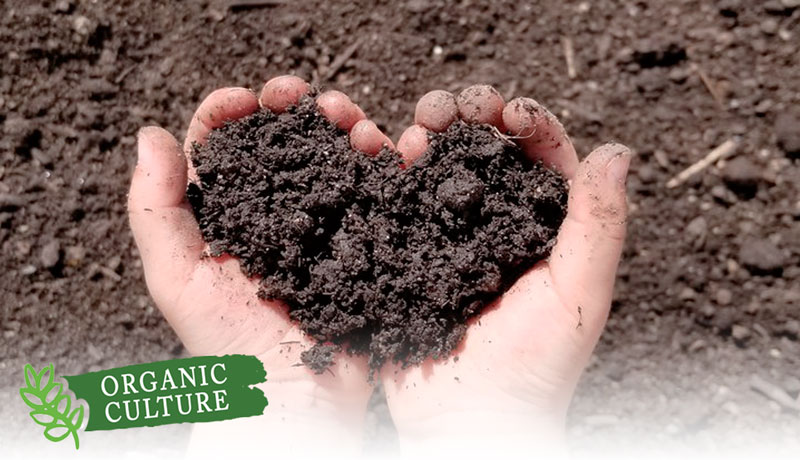Soil and compost are essential components of organic farming. Soil is a natural resource that provides a medium for plant growth, while compost is a soil amendment that improves soil fertility. Soil is a complex mixture of minerals, organic matter, water, and air. It is the foundation of agriculture and provides the nutrients that plants need to grow. Organic farming relies on soil health and fertility to produce crops without the use of synthetic chemicals.
Compost is created by decomposing organic matter such as food waste, leaves, and manure. It is rich in nutrients and beneficial microorganisms that improve soil structure and fertility. Composting is a natural process that has been used for centuries to recycle organic waste into a valuable resource for agriculture. Organic farmers use compost to enrich the soil and promote the growth of healthy crops.
The relationship between soil and compost is a crucial aspect of organic farming. Soil health is essential for sustainable agriculture, and compost is a key tool for improving soil fertility. Organic farmers use compost to build healthy soil that is rich in nutrients and beneficial microorganisms. By using compost instead of synthetic fertilizers, organic farmers can reduce their environmental impact and produce crops that are healthier for people and the planet.
What is Soil?
Soil is a complex mixture of minerals, organic matter, water, air, and countless living organisms. It is a natural resource that is essential for plant growth, and its composition can vary greatly depending on location, climate, and other factors. Understanding the composition and types of soil is crucial for organic farming, as soil health is essential for producing healthy, nutrient-rich produce.
Composition
Soil is composed of three main components: minerals, organic matter, and water. Minerals, such as sand, silt, and clay, make up the majority of soil and provide important nutrients and structure. Organic matter, such as food scraps, garden waste, and manure, is made up of dead plant and animal material and provides essential nutrients for plant growth. Water is also essential for plant growth and helps to transport nutrients throughout the soil.
Types of Soil
There are several different types of soil, each with its own unique characteristics. Sandy soil is composed of large particles and drains quickly, while clay soil is made up of small particles and retains water for longer periods. Loam soil, which is a mixture of sand, silt, and clay, is considered ideal for plant growth as it provides good drainage and water retention.
Importance of Soil in Organic Farming
Soil health is crucial for organic farming, as healthy soil leads to healthy plants and nutrient-rich produce. Organic farming relies on natural fertilizers, such as manure and compost, to provide essential nutrients to the soil. These natural fertilizers help to improve soil structure, increase water retention, and promote the growth of beneficial microorganisms.
Organic farming also focuses on maintaining soil health by avoiding the use of chemical fertilizers and pesticides, which can harm soil health and the environment. By focusing on soil health, organic farmers can increase productivity, produce healthier crops, and reduce their environmental impact.
In addition, healthy soil can also help to reduce the risk of heavy metal contamination and improve water quality. Soil acts as a natural filter, removing pollutants and contaminants from water as it passes through the soil.
Overall, soil is a vital natural resource for organic farming, and understanding its composition and importance is crucial for producing healthy, nutrient-rich produce while reducing environmental impact.
What is Compost?
Compost is a soil amendment that is created through the decomposition of organic matter. It is a natural process that occurs when microorganisms, such as bacteria, fungi, and nematodes, break down organic materials like food scraps, garden waste, and yard waste. The resulting material is a nutrient-rich soil amendment that can be used to improve soil health and fertility.
Composition
Compost is made up of a variety of organic materials, including food scraps, garden waste, yard waste, and manure. These materials are broken down by microorganisms, which release nutrients like phosphorus and potassium into the soil. The resulting material is called finished compost, which is a dark, crumbly substance that resembles soil.
Types of Compost
There are several different types of compost, including:
- Yard waste compost: This type of compost is made from leaves, grass clippings, and other yard waste.
- Manure compost: This type of compost is made from animal manure, which is a rich source of nitrogen.
- Municipal solid waste compost: This type of compost is made from household waste that has been collected from curbside pickup programs.
- Worm compost: This type of compost is made using worms, which help to break down organic materials more quickly.
Importance of Compost in Organic Farming
Compost is an essential component of organic farming. It helps to improve soil structure, increase soil organic matter, and provide nutrients to crops. By using compost, farmers can reduce their reliance on synthetic fertilizers, which can be harmful to the environment.
Compost also helps to sequester carbon in the soil, which can help to mitigate climate change. When organic materials are composted, they release carbon dioxide into the atmosphere. However, by using compost to improve soil health, carbon can be stored in the soil for many years.
In addition to its environmental benefits, compost can also help to improve crop yields and quality. It can help to suppress weed seeds, reduce the risk of disease, and improve soil water retention. However, it is important to note that the quality of compost can vary depending on the source of the organic materials used to create it. Compost made from materials that contain heavy metals or other contaminants can be harmful to crops and the environment.

